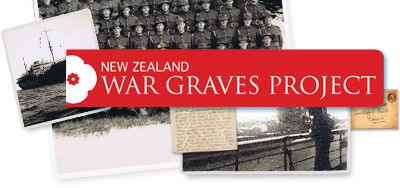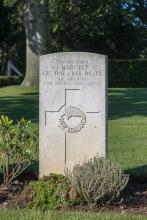“The outstanding military career of Brigadier James Hargest, C.B.E., D.S.O., M.C., V.D., Legion of Honour, member of Parliament for Awarua, was surveyed by speakers in the House of Representatives this afternoon when tributes to his service and memory were paid by both sides of the House. The Prime Minister (the Rt. Hon. P. Fraser) moved that the House express its high sense of the faithful service given to New Zealand by Brigadier Hargest and tender to Mrs Hargest and her family sincere sympathy. Mr Fraser said Brigadier Hargest’s death occurred on August 12, and he also referred to other members of Parliament who had given their lives in this war.
Brigadier Hargest, he said, had, at the outbreak of war, offered his services to the Government and the country in any capacity. When he was selected to command the 5th Brigade his medical report was adverse and no man had ever struggled more to get into the Army. Members of the House who had served with him knew of his consideration for his men.
On Sunday, June 1, 1941, said Mr Fraser, he had been rang up by Brigadier Hargest at Cairo. Brigadier Hargest had served with distinction in Greece and had played an important part in Crete. He was the last commanding officer to leave Crete and before he left he had packed as many of his men as possible on to the last boat to go and had been forced to tell those remaining that there was no transport for them. He told Mr Fraser that he had come away in a flying-boat because he was ordered to do so, but to do so had been the greatest hardship of his military life. He had arrived at Cairo early in the morning unshaved and unwashed but refused to do anything, even to take food or drink, until every possibility of rescuing his men had been explored. They had consulted Lieut-General Sir Alan Cunningham, Air Chief Marshal Sir Arthur Tedder and Admiral Sir Andrew Cunningham, and it was only when these leaders assured him that nothing more could be done that Brigadier Hargest relaxed in the slightest.
DEVOTION TO MEN
“I do not know if anywhere in history is recorded more devotion by a leader to his men in the. field,” Mr Fraser said.
Brigadier Hargest later gave Colonel F. Waite and the Prime Minister a frank description of the campaign in Greece and Crete and made some suggestions about the New Zealand forces which afterwards were gladly adopted by Lieut-General Sir Bernard Freyberg.
Mr Fraser said that at the recent meeting in London Brigadier Hargest described his meeting with Field-Marshal Rommel. When Rommel approached, Brigadier Hargest bowed. Rommel looked annoyed. Senior officers said Rommel was angry because Brigadier Hargest did not salute. Brigadier Hargest replied that he had paid full honour but did not salute enemy officers. Rommel paused, then said, “Your men fight well, but not as well as mine.” Brigadier Hargest replied, “You know that is not true. I think my men are the better. You must at least admit they are equal to your own.”
Mr Fraser said that hearing from Brigadier Hargest’s own lips the story of his subsequent escape across Europe was a unique experience. “The story is one which when printed in a book, which I understand is now in the hands of the printers, will read like one of the most exciting episodes in human history,” Mr Fraser said. The story was one of courageous men who took knives and iron bars and cut through rock. Some of them escaped, including Brigadiers Hargest and Miles who made their way with great daring through Switzerland, France and Spain. Unfortunately Brigadier Miles did not survive the journey but Brigadier Hargest reached England and after recuperation asked to serve again with the division in Italy or else in France with the invasion forces.
REPATRIATING PRISONERS
So great was his concern for the welfare of men of all ranks who had shared his own experiences as a prisoner of war that he was the obvious man to be placed in charge of arrangements for their welfare on their return to Britain. He was to have begun his duties in that capacity on September 1 but had apparently insisted on returning to France for the remaining three weeks. Mr Fraser said that on his last visit to Italy he had, at Brigadier Hargest’s request, visited the grave of the latter’s son near Cassino. Mrs Hargest had an immense burden of sorrow in the loss of a son and her husband. Brigadier Hargest was an outstanding character, a brilliant, distinguished and honourable soldier, one of New Zealand’s finest citizens and greatest sons. Mr S. G. Holland, Leader of the Opposition, said the occasion was one he had hoped might have been avoided. Brigadier Hargest had seemed to bear a charmed life. His dominating thought was always for the best in the interests of the common people of New Zealand. He never asked anything for himself; he was a very selfless man with outstanding qualities of leadership. It was typical that he regarded his military decorations as being not a personal honour but recognition of the men under his command. A large number of speakers from both sides of the House joined in paying tribute. The Minister of Finance (the Hon. W. Nash) revealed that Brigadier Hargest had travelled through France, when escaping to Spain, as a railway worker. Mr Nash said that when the Germans stopped the train Brigadier Hargest was surrounded by other railwaymen and hidden in a hut. One of the railwaymen had escorted him into the Pyrenees to the Spanish border. The House adjourned at 4.22 pm. until tomorrow as a mark of respect.” [Southland Times, Issue 25449, 23 August 1944, Page 4]









